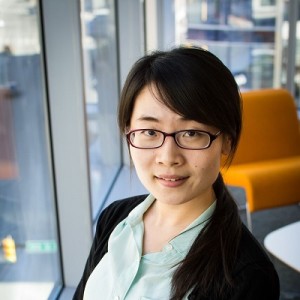DAC Student Spotlight: Yue Ning

Yue Ning, DAC Ph.D. student in computer science
“Working in data science and machine learning is exciting, but it is even more exciting when science helps us solve real-world challenges,” said Yue Ning, a Ph.D. student in the computer science department.
The opportunity to be involved in high impact research drew Ning to Virginia Tech and DAC. “I am fortunate and honored to be working with Dr. Naren Ramakrishnan, who is one of the leading researchers in data analytics and applied machine learning,” she said.
Ning’s interest in computer science evolved from her love of math and puzzles in elementary school.
“When I first discovered the computer, I was attracted to the beauty of its processing power and multiple fascinating functions. Without a doubt, I chose to study computer software when I enrolled in college,” Ning said. “And that is when social media really took off.”
Since then, she said, the world has become more and more connected, generating accessible data at massive scales. Data-driven models are motivated by, and have contributed to, many domains including social informatics, security, games and health.
“I believe in data and find myself especially interested in data-driven machine learning and AI applications. The area has provided tons of opportunities for computer scientists to explore with the help of innovative algorithms. I am always excited to learn cutting-edge theories, models, and applications in this big data era,” Ning said.
Her research focuses on applying machine learning algorithms to solve real world problems such as forecasting societal events as well as predicting users’ behaviors in online services. Ning’s thesis is about discovering precursors for the use in event modeling and forecasting. A key problem of interest to social scientists and policy makers is modeling and forecasting large-scale societal events such as civil unrest, disease outbreaks, and turmoil in economic markets. Forecasting algorithms are expected not only to make accurate predictions, but also to provide insights into causative attributes that influence an event’s evolution.
“With the machine learning paradigm known as multi-instance learning I have been studying and developing frameworks that discover event precursors,” said Ning. “Using large-scale distributed representations of news articles and multi-task learning, I can demonstrate how this framework can provide clues into the spatio-temporal progression of events.”
Ning, who received a master’s degree in computer science and applications from the Graduate University of Chinese Academy of Sciences is expecting to graduate in summer 2018 and join the Department of Computer Science at Stevens Institute of Technology as an assistant professor in the fall.
Among other accomplishments while a Ph.D. student, earlier this year, Ning received a Student Travel Award to attend the SIAM International Conference on Data Mining; was invited to serve on the program committee for the Advances in Social Networks Analysis and Mining (ASONAM) conference; and had a paper accepted by the ACM Transactions on Knowledge Discovery from Data (TKDD).